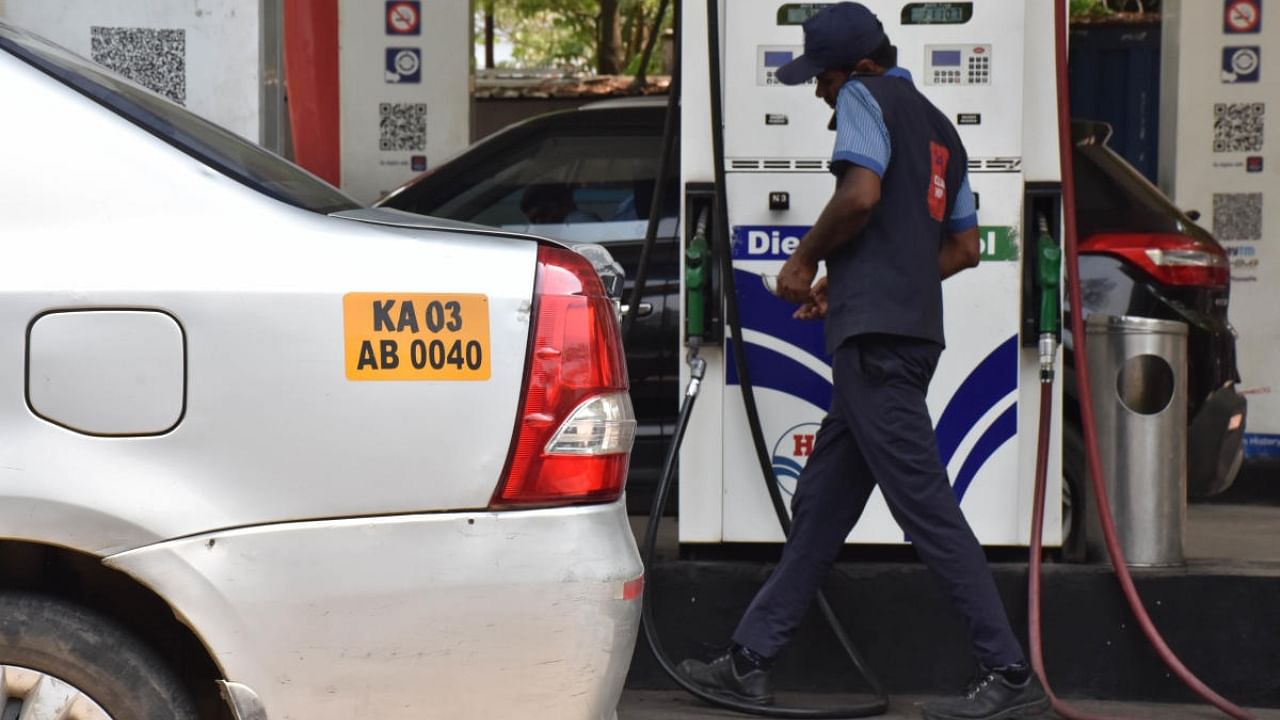
The decision of the Reserve Bank of India (RBI) to withdraw Rs 2,000 currency notes is triggering disquiet at fuel stations, with many outlets sparring with customers over paying change.
The federation of petroleum dealers in Karnataka also dispatched a letter to the RBI, expressing concern over coming under the lens of tax authorities.
The issue spotlights the unforeseen side-effects that have cropped up following the central bank's sudden move, which spooked people and brought back memories of the 2016 demonetisation.
Manohar G said he was surprised when the cashier at a fuel station near Yelahanka stood at the entrance and asked about the mode of payment.
"He let me in after I told him that I will pay digitally. Within a minute, I saw the cashier arguing with a customer and saying that Rs 2,000 note will not be accepted," he said.
DH spoke to three fuel station owners who said staffers in many outlets have begun asking customers beforehand whether they intend to pay with the 'big note'.
Fuel stations are seen as the best place to exchange the notes as queues are usually less and the transactions are quick.
"Over the last two years, we have seen Rs 2,000 note once in four or five months. Most of the people buy fuel worth Rs 200. If two of them give us a Rs 2,000 note, the cash counter runs out of all the change. Refusal leads to quarrels," said Dr Harish Reddy, who runs a fuel station in Rajanukunte.
The Akhila Karnataka Federation of Petroleum Dealers on Monday wrote to the RBI Governor, expressing concern over incidents similar to the ones that took place during demonetisation.
Also Read: DH Deciphers | All you need to know about Rs 2,000 note ban - amount limits, deadline and procedures
"The beleaguered public stormed like bees to transact with such demonetised notes, leaving petrol dealers in a lurch," said K M Basavegowda, president of the association.
"Eventually, (we) received notices from tax authorities for remittance of such notes in excess than usual. The scenario at present is no less different."
The letter said the spurt in the flow of Rs 2,000 notes has created "panic among petroleum dealers of the need to explain to tax authorities" at a later date of the "unusual increase" in remittance of the notes.
Though the RBI has clarified that the "big note" will continue to be legal tender, messages on social media have created confusion among the public.
As a result, many are trying to exchange it in the quickest way possible.
A M Tharanath from the association said, "If staffers at stations are refusing it, because they are tired of quarelling with customers. Of course we are worried over the tax notice. But as long as it is legal, we can't do anything."
Most of the retail stations in Bengaluru see an average daily transaction of Rs 8 to 10 lakh. About 60% of the payments are made through cards or UPI.